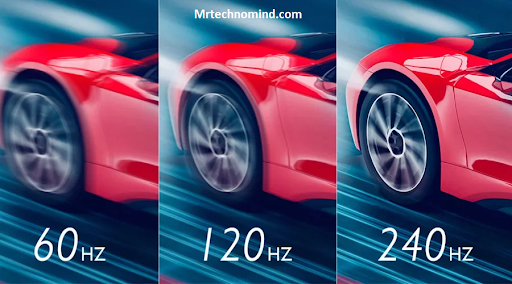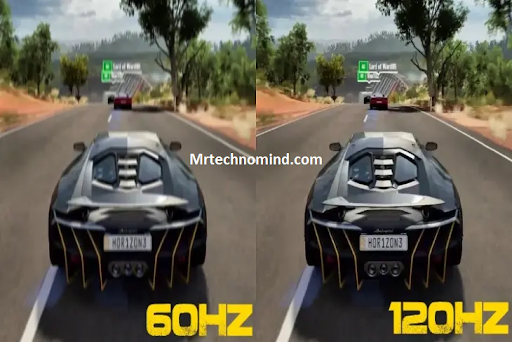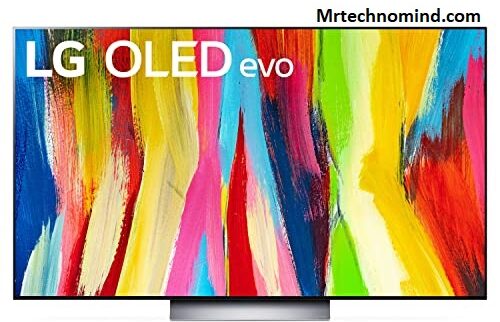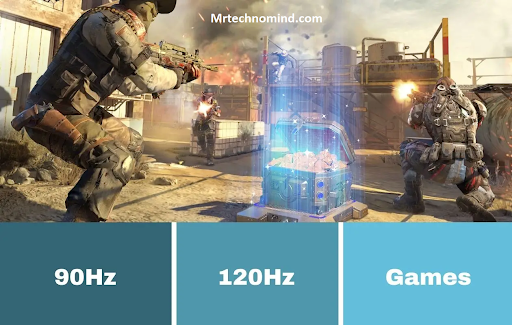60hz Vs 120hz for Tvs – is It Worth the Upgrade?

When buying a new TV, there are many factors to consider. One of the most important is the refresh rate, which determines how smoothly motion is displayed on the screen. The refresh rate is measured in Hertz (Hz), and typically ranges from 60Hz to 120Hz or higher.
But what’s the difference between 60Hz and 120Hz, and is it worth paying extra for a higher refresh rate?
At first glance, the difference between 60Hz and 120Hz may not seem a big deal. After all, both options provide smooth playback of movies, TV shows, and video games. However, some key differences can affect your viewing experience.
In this article, we’ll explore the pros and cons of each option to help you decide whether upgrading to a higher refresh rate is worth it.
60hz Vs 120hz for Tvs – is It Worth the Upgrade?
| Feature | 60Hz | 120Hz |
| Refresh Rate | 60 frames per second (fps) | 120 frames per second (fps) |
| Motion Handling | Average | Smooth |
| Motion Blur | Slight blur in fast-moving scenes | Reduced blur in fast-moving scenes |
| Gaming Performance | Adequate for most casual gamers | Improved responsiveness for fast-paced games |
| Compatibility | Supports most content formats | Supports most content formats |
| Price | Usually more affordable | Often more expensive |
| Content Availability | Widely available | Limited availability of 120Hz-specific content |
| Worth the Upgrade? | Depends on personal preference and intended use. If you watch a lot of sports, action movies or play fast-paced video games, the upgrade may provide a better viewing experience. Otherwise, 60Hz is generally sufficient for regular TV viewing. | Worth considering if you prioritize smooth motion and immersive gaming experiences, but keep in mind the limited availability of 120Hz content. |
Did you know that the average person spends about 3-4 hours a day watching TV? That equates to roughly 28 hours per week. With this much time spent in front of the screen, it’s essential to consider the quality of your viewing experience.
One factor that can significantly impact this is the refresh rate of your TV. Most TVs on the market today have a refresh rate of 60Hz, meaning they refresh their image 60 times per second. However, TVs are also available with a higher refresh rate of 120Hz.
This may not seem like a significant difference, but it can noticeably impact picture quality. A higher refresh rate means smoother motion and less blur during fast-paced scenes or sports games. It can also reduce input lag, which is especially important for gamers.
So, is upgrading to a 120Hz TV worth it? Let’s understand the refresh rate to help answer that question.
Understanding the Refresh Rate

| Term | Definition |
| Refresh Rate | The number of times per second a display updates its image. Measured in Hertz (Hz). |
| Frames per Second (fps) | The number of unique images (frames) displayed in one second. |
| 60Hz | A refresh rate of 60 times per second, meaning the display updates the image 60 times every second. |
| 120Hz | A refresh rate of 120 times per second, providing smoother motion and faster image transitions. |
| Motion Handling | The TV’s ability to handle fast-moving images without motion blur or artefacts. |
| Motion Blur | Blurring or ghosting occurs when fast-moving objects appear blurry or leave a trail on the screen. |
| Gaming Performance | The impact of refresh rate on gaming, including improved responsiveness and smoother gameplay. |
| Content Compatibility | The ability of the display to support various content formats at different refresh rates. |
| Content Availability | The availability of content optimised explicitly for higher refresh rates. |
| Worth the Upgrade? | A subjective decision based on personal preferences and intended use, considering factors like budget, content consumption, and specific needs. |
Now that we’ve discussed the difference between Hz and 120Hz for TVs let’s dive deeper into understanding the refresh rate.
The refresh rate refers to how many times per second an image on your TV screen is refreshed.
A higher refresh rate means that the image updates more frequently, resulting in smoother motion on the screen.
When upgrading your TV’s refresh rate, it ultimately depends on what you use your TV for.
If you primarily watch movies or TV shows, then a standard 60Hz refresh rate should suffice.
However, investing in a higher refresh rate can significantly enhance your viewing experience if you’re a gamer or enjoy watching sports or action-packed scenes.
So what happens when you get a higher refresh rate?
You’ll notice less motion blur and smoother transitions between frames, resulting in a clearer, more realistic picture.
Additionally, some higher-end TVs come with features like variable refresh rates and auto low latency mode that further improve the overall gaming experience.
Ultimately, upgrading to a higher refresh rate can be worth it if you value smooth motion and enhanced visual quality while watching TV or playing video games.
What Happens When You Get a Higher Refresh Rate?

As you upgrade your TV, you might wonder what happens when you get a higher refresh rate. Well, a higher refresh rate means that the screen updates more frequently. It translates to smoother motion and less blur in fast-paced scenes or action-packed games.
A higher refresh rate can make a massive difference in your gaming experience if you’re an avid gamer. You’ll have less input lag and enjoy more responsive controls, which is critical for competitive gamers who rely on split-second reactions.
Even if you’re not into gaming, a higher refresh rate will give you a more enjoyable viewing experience with less motion blur and stuttering.
Ultimately, whether it’s worth getting a TV with a 120 Hz refresh rate depends on your preferences and budget. If you value seamless visuals and have the budget to spare, upgrading to 120Hz might be worth it. However, if you don’t notice any substantial difference in image quality or have other priorities for spending your money, sticking with 60Hz could be fine for your needs.
Is Worth It to Get a Tv With a 120 Hz Refresh Rate?

Is getting a TV with a 120 Hz refresh rate worth it? This is a question that many people ask when they are in the market for a new television. The answer to this question depends on what you plan on using your TV for.
For those who primarily use their TV for sports or action movies, upgrading to a 120 Hz refresh rate may be worth it. The higher refresh rate can help reduce motion blur and provide smoother images during fast-paced scenes.
However, the upgrade may not be necessary if you mainly use your TV for watching regular programming or playing video games that don’t require high frame rates. Some people may not even notice a difference between a 60 Hz and 120 Hz refresh rate.
To summarize, whether or not it’s worth getting a TV with a 120 Hz refresh rate depends on how you plan to use it. Consider your viewing habits and needs before making your decision.
– A 120 Hz refresh rate can provide smoother images during fast-paced scenes.
– Upgrading may be worth upgrading for those who primarily watch sports or action movies.
– The upgrade may not be necessary if you mainly watch regular programming or play video games that don’t require high frame rates.
– Consider your needs before deciding if the upgrade is worth it.
Gamers will love the benefits of having a TV with a 120 Hz refresh rate. Higher refresh rates mean smoother gameplay and faster response times, giving gamers an edge during competitive matches. Some gaming consoles like the Xbox Series X and PlayStation 5 also support up to 120 fps (frames per second), making them compatible with TVs with higher refresh rates.
Overall, if you enjoy playing video games or watching action-packed content like sports and movies, upgrading to a TV with a 120 Hz refresh rate may be worth it. However, if you primarily use their TV for regular programming, then the upgrade may not make a noticeable difference.
Gamers Will Love 120hz

Have you ever played a game that didn’t feel smooth enough? Maybe the graphics were great, but the motion felt choppy or laggy.
A higher refresh rate, like 120Hz, can make a huge difference. With more frames per second, game movements become much smoother and more natural.
Imagine playing your favourite first-person shooter on a 60Hz TV. You’re sprinting across the map, trying to avoid enemy fire, when suddenly, everything starts to stutter and lag. It’s frustrating and can even cost you the match.
But with a 120Hz TV, those same movements would be buttery-smooth, allowing you to react quickly and stay ahead of the competition.
Upgrading to a 120Hz TV is worth it for gamers who take their hobby seriously. Not only does it improve gameplay performance, but it also enhances immersion by providing a more lifelike experience.
So if you spend hours at a time in virtual worlds, consider making the switch – your gaming sessions will thank you for it!
Frequently Asked Questions
1. What is the Difference Between 60hz and 120hz in Terms of Picture Quality?
Regarding picture quality, the difference between 60Hz and 120Hz is quite significant.
A television with a higher refresh rate of 120Hz will offer smoother motion and less blur during fast-paced scenes, making it ideal for sports or action movies.
The increased frame rate also allows for better rendering fine details and textures in images.
Overall, if you’re a serious movie or sports enthusiast, upgrading to a 120Hz TV is worth considering.
2. Will I Notice a Significant Difference in the Smoothness of Fast-moving Scenes With a 120hz Refresh Rate?
You may have heard that upgrading to a 120Hz refresh rate for your TV can significantly improve the smoothness of fast-moving scenes. But is this really true
Well, the answer is yes and no. While a higher refresh rate can technically display more frames per second, the difference between 60Hz and 120Hz may not be noticeable to everyone. It largely depends on individual perception and what types of content you typically watch on your TV.
Those who enjoy watching sports or action movies may benefit more from a higher refresh rate, while others may not notice much difference. Ultimately, it’s up to personal preference and whether or not you’re willing to invest in an upgraded TV.
3. Does the Refresh Rate Affect the Input Lag of the Tv?
The refresh rate of a TV can indeed affect its input lag. Generally speaking, the higher the refresh rate, the lower the input lag.
This is because a higher refresh rate allows for faster updates to the screen, which in turn means that there is less time between when you press a button on your remote and when that action appears on your screen.
However, it’s worth noting that many factors can affect input lag, so it’s always a good idea to research before purchasing a new TV if low input lag is significant to you.
4. Are All 120hz Tvs Created Equal in Terms of Picture Quality and Motion Handling?
When it comes to 120Hz TVs, not all models are created equal in terms of picture quality and motion handling.
While a higher refresh rate can undoubtedly improve the viewing experience, factors such as panel type, processing power, and backlighting significantly determine how well a TV performs.
Therefore, if you’re considering upgrading to a 120Hz TV, it’s essential to look beyond the refresh rate and feel other features that may impact picture quality and motion handling.
5. Can a 60hz Tv Be Upgraded to a 120hz Refresh Rate?
Have you ever experienced the thrill of watching your favourite action-packed movies or sports events on a 120Hz TV? The smoothness and clarity of the picture quality are almost surreal!
But what if you own a 60Hz TV and want to upgrade to a 120Hz refresh rate? Unfortunately, upgrading your existing TV’s hardware is impossible to achieve a higher refresh rate.
A 120Hz TV has specific hardware components that enable it to display images at twice the speed of a 60Hz TV. Therefore, if you want to enjoy the benefits of a 120Hz TV, you must invest in a new one.
Conclusion
In conclusion, upgrading to a 120Hz TV from a 60Hz one will improve picture quality and motion handling. The smoothness of fast-moving scenes will be significantly enhanced, making it easier to follow the action.
However, some may argue that the upgrade is not worth the expense.
I would ask those who believe this: don’t you deserve the best viewing experience? Why settle for less when you can have a TV that delivers superior performance?
Investing in a 120Hz TV may seem unnecessary initially, but once you see the difference, you’ll realize it was worth every penny.
Treat yourself to a better viewing experience – you won’t regret it.